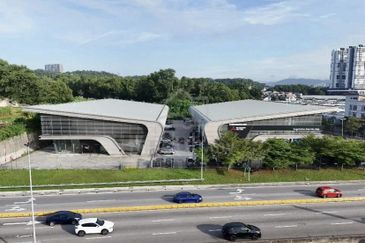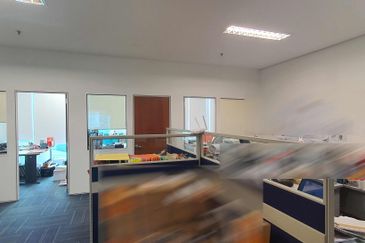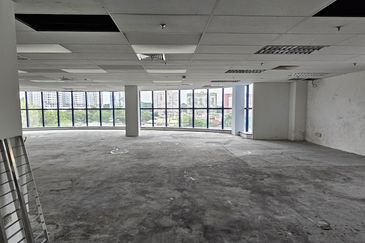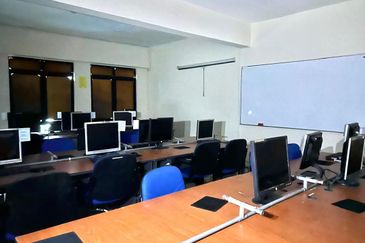
The implementation of the Goods and Services Tax (GST) on April 1, 2015, and its abolishment three years later probably makes it one of the most — if not the most — controversial tax to be introduced in Malaysia’s history.
The GST was also highly politicised — abolishing it was the numero uno promise of the Pakatan Harapan government in its election manifesto on the argument that it is a tax that oppresses the lower-income groups. Meanwhile, its defenders — the Barisan Nasional camp, mainly former prime minister Datuk Seri Najib Razak — say it is PH’s Sales and Service Tax (SST) that has been a burden to the rakyat.
A pertinent question is whether abolishing the GST was the right thing to do given that crude oil prices have been on a downward trend for the past five years.
The GST collection for last year was estimated at RM23.1 billion, about half of the RM44.35 billion collected in 2017.
Anushka Shah, a senior analyst at Sovereign Risk Group at Moody’s Investors Service, says abolishing the GST will have a long-lasting impact on revenue collection in terms of magnitude and quality, while also increasing Malaysia’s reliance on more volatile oil-related revenue.
“Partly because of these policy choices, a very steady path of deficit reduction has been disrupted. Future consolidation will be more difficult to implement with an eroding revenue base, particularly in a weaker global environment,” she says.
Baker Tilly Malaysia managing partner and Asia-Pacific leader for tax services Anand Chelliah says there is no doubt that the GST is an efficient system of tax collection.
“Personally though, I feel that it was introduced at the wrong time [by] the previous regime, and doomed to fail. The GST should have been introduced during an economic upturn and growth, and at sensible rates that would allow everyone to gradually ease into the system. At 6%, it was difficult for the Bottom 40% households to take.
“The abolishment of the GST was perhaps not necessary, but then again, that is the politics of the day. A lower rate may have been the way to approach things,” he adds.
However, the GST had its hiccups, with some RM19.4 billion in GST refunds not returned to businesses as at May 31 last year, as disclosed by the PH government. It is now reimbursing the GST refunds together with the income tax refunds — using the one-off special dividend from Petroliam Nasional Bhd.
Ernst & Young Tax Consultants Sdn Bhd partner and Malaysia tax leader Amarjeet Singh says one of the main concerns of businesses with the GST previously was the administration of tax refunds, which resulted in cash flow issues for some businesses.
“I note an improvement in the Customs’ (Royal Malaysian Customs Department) efficiency and commitment in processing the GST refunds that remain outstanding.
“It should not be forgotten that abolishing the GST was part of the new government’s promise to the rakyat in the lead up to the election and it delivered on that promise, and the SST has now been introduced to address the revenue gap from the abolishment of the GST,” he adds.
One approach that the PH government could have taken was to halve the GST rate while educating the public about the leakages in the GST system and the benefits accruing to them through greater spending efficiency and accountability of the tax revenue, says Sunway University Business School economics professor Dr Yeah Kim Leng.
“Politically, it is the right move to abolish the GST in keeping with its campaign promise. From an economic perspective, reducing the GST rate might have been a more effective strategy in keeping with the need to raise indirect tax revenue while reducing direct taxes to enhance the competitiveness of the country’s tax regime,” he says.
With the GST now water under the bridge, exactly how effective is the new and improved SST or SST 2.0, as it has been deemed, compared with the earlier SST model?
“SST 2.0 was certainly not the way forward in my opinion. The two single-stage taxes (sales and service) comprising the SST leaves us in ‘no-man’s-land’ — they are neither impactful tax collection tools nor broad-based enough, and not allowing for recovery of tax suffered by businesses creates an unnecessary cost-push factor in the economy,” says Chelliah.
Amarjeet is of the view that the new and improved SST regime has seen upgrades in terms of administration and execution, where taxpayers file their returns and submit applications electronically via the MySST portal compared with the manual submission in the old regime.
“We believe that SST 2.0 in its current form is still evolving, with potential changes to be introduced. Key issues, which should be addressed, include the lack of a broad input credit system as well as the possibility of expanding the scope of the taxes to cover new sectors,” he says.
A softer approach in tax collection
An interesting point to note is the change in tone when it comes to tax collection between the two regimes. Under Barisan Nasional, tax collection was deemed to be “overaggressive” with the Inland Revenue Board (IRB) launching one tax collection operation after another to improve collection.
Chelliah says the Special Voluntary Disclosure Programme is the beginning of a process of trust building and correct, just and unbiased enforcement procedures.
“I welcome the attempts by the government to enhance the image and perception of the tax authority. It is a correct approach in civil society for us to get the balance right — treat good taxpayers as priority customers, but go hard on wrongdoers.
“Evidence suggests that what taxpayers really want is to know where and how well their tax monies are being spent. [If this is done correctly,] people will be encouraged to be good, honest taxpayers. So, what the new government is doing is to start this relationship over, in some ways,” he says.
S Saravana Kumar, a partner at law firm Lee, Hishamuddin Allen & Gledhill (LHAG), concurs, saying the government should be applauded for leaving the “roughhouse tactics” behind in an attempt to reinstate public confidence in the IRB.
“However, in spite of the move to attract voluntary compliance, the new approach still appears to be forceful. Not only were the letters sent out worded harshly, they were also unsystematic and not specifically targeted.
“Furthermore, the penalties imposed after the expiry of the programme will be much higher than before,” he says.
Pursuing tax reform
Moving forward, Amarjeet says one area the government could look into is how competitive Malaysia is internationally from a tax policy perspective.
“While our headline corporate income tax rate is still relatively competitive at 24%, many countries are lowering their corporate tax rates, generally to a range of 17% to 21-22%. So that is one space to watch.
“Other areas include finding the right balance of tax incentives, particularly where the government wishes to encourage one particular geographic region or type of business activity. This is particularly so when the government wants to encourage the digital economy and Industry 4.0,” he says.
From a tax law standpoint, Saravana says there is a need to get additional panel members on the Special Commissioners of Income Tax (SCIT) to hear tax cases.
“The hearing of a case can take up to over two years, and it is unfair to the taxpayer who must pay first and wait up to two years to have his case heard. Further, the 12-month review process under Section 102(1) [under the Income Tax Act 1967] must also be shortened. It is feared that the SCIT may not be independent as appointments are made by the finance minister who also oversees the IRB,” he points out.
“Ultimately, there is a need for more consultation in formulating and introducing new tax laws or policies in order to simplify the overall process of tax administration. One of the challenges with the implementation of the GST was how complex it was and how difficult it was for businesses to comply with as there were many formulas involved. To prevent such problems, the government should make laws that are more detailed and friendly in order to enable taxpayers to comply.”
This article first appeared in The Edge Malaysia Weekly, on May 6, 2019 - May 12, 2019.
TOP PICKS BY EDGEPROP

Taman Taming Indah 2
Bandar Sungai Long, Selangor

Canal Gardens, Kota Kemuning
Kota Kemuning, Selangor

Taman Perindustrian USJ 1
Subang Jaya, Selangor

The Residence, Mont Kiara
Mont Kiara, Kuala Lumpur

Damansara Heights (Bukit Damansara)
Damansara Heights, Kuala Lumpur

Menara Mitraland, Kota Damansara
Petaling Jaya, Selangor



















